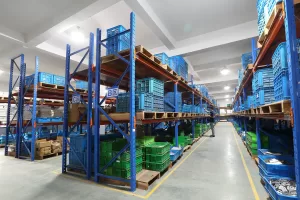The escalating trade tensions between the United States and China have led to significant changes in the global trade landscape. One of the most impactful measures has been the imposition of sanctions and increased export tariffs by the U.S. on Chinese goods. This article explores the specific repercussions of these sanctions on China's hardware manufacturing industry and outlines strategic measures that companies should adopt to mitigate these effects.

Impact on China's Hardware Manufacturing Industry
Increased Production Costs
The U.S. sanctions have resulted in higher export tariffs on Chinese hardware products, leading to increased production costs. This, in turn, affects the profit margins of Chinese manufacturers, making it more challenging to compete in the global market. The long-term effect could be a shift in the industry towards more cost-effective production practices, including automation and technological advancements, to maintain competitiveness.
Supply Chain Disruptions
The hardware manufacturing industry relies heavily on a well-functioning supply chain. Sanctions have disrupted this flow, causing delays and increased costs in raw material procurement and product delivery. The need for a resilient supply chain has never been more apparent, prompting companies to re-evaluate their supply chain strategies and possibly source materials locally or from less volatile markets.
Market Access Limitations
With heightened tariffs, Chinese hardware manufacturers face reduced access to the U.S. market, which has traditionally been a significant consumer of Chinese products. This limitation forces manufacturers to seek alternative markets, which may not be as lucrative or accessible. The diversification of markets, though challenging, could lead to a more balanced global presence and reduce dependency on any single market.
In-depth Thoughts and Strategic Measures
Diversification of Markets
To mitigate the impact of reduced access to the U.S. market, Chinese hardware manufacturers should diversify their markets. Exploring opportunities in Europe, Africa, and other emerging markets can help balance the loss and open new revenue streams. Additionally, strengthening regional trade agreements within Asia could provide a stable and growing market base.
Investment in Innovation
Increasing investment in research and development can lead to the creation of high-value products that are less sensitive to tariff fluctuations. Innovation in design and functionality can also create a competitive edge in both domestic and international markets. For instance, smart home technology and environmentally friendly products are gaining popularity and can open new avenues for growth.
Supply Chain Optimization
Enhancing supply chain management and seeking local alternatives for raw materials can reduce dependency on imports and minimize the impact of international sanctions. Efficient logistics and inventory management can further reduce costs and improve delivery times. Companies might also consider vertical integration to gain more control over their supply chains.
Strategic Alliances and Partnerships
Forming strategic alliances with companies in non-sanctioned countries can provide new avenues for collaboration and market access. Partnerships can also facilitate technology transfer and joint ventures that strengthen production capabilities. By leveraging global networks, companies can enhance their resilience against geopolitical risks.
Government Support and Advocacy
Engaging with the Chinese government to seek support and relief measures can provide temporary alleviation. Advocacy for favorable trade policies and participation in international trade negotiations can also help reduce the long-term impact of sanctions. Additionally, government-backed incentives for innovation and market diversification can bolster the industry's adaptability.
The current geopolitical landscape presents significant challenges for China's hardware manufacturing industry. However, these challenges also provide an opportunity for introspection and strategic realignment. By diversifying markets, investing in innovation, optimizing supply chains, forming strategic alliances, and seeking government support, Chinese hardware manufacturers can navigate the uncertainties of international trade and emerge more resilient and competitive.
The dialogue on this topic must continue, as the implications of these sanctions are far-reaching and multifaceted. It is crucial for industry stakeholders to remain adaptive and proactive in responding to these changes, ensuring sustainable growth and long-term success in an increasingly complex global market.






